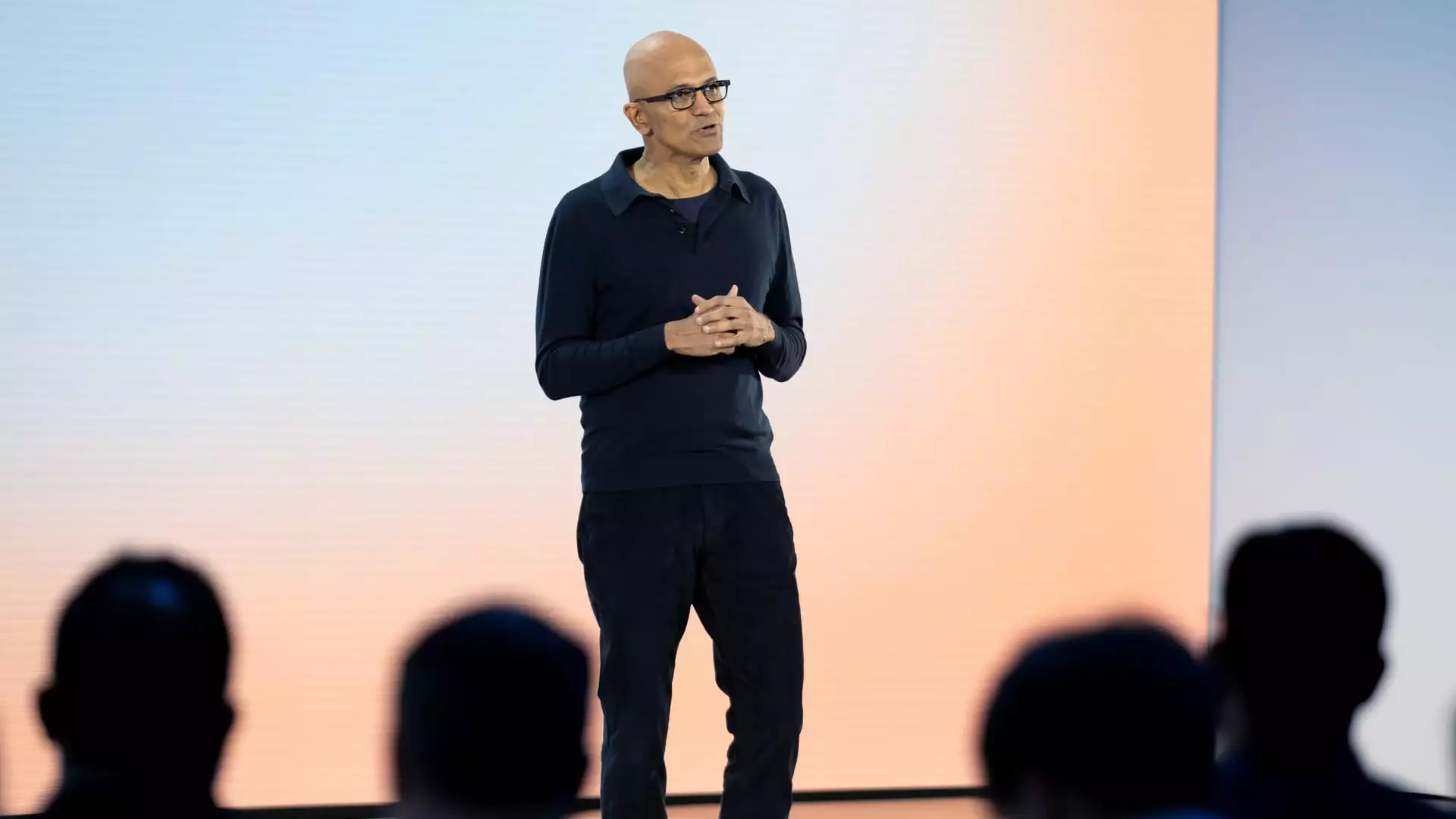In a significant development within the corporate realm, Microsoft’s CEO, Satya Nadella, has received a staggering compensation boost for the 2024 fiscal year, marking an increase to $79.1 million from the previous $48.5 million. This substantial jump underscores the immense value that technology giants place on their leadership, particularly in an industry where stakes are perpetually high. However, Nadella’s enhanced package is shrouded in an interesting narrative of accountability, particularly in the context of escalating cybersecurity threats that have recently rocked the tech landscape.
Interestingly, Nadella’s total remuneration could have been even higher—by approximately $5.5 million—if not for a series of cyber incidents that necessitated a standalone evaluation of Microsoft’s security protocols and executive accountability. It was revealed in a recent proxy filing that Nadella requested a reduction in his cash incentive, directly correlating this decision to the heightened awareness surrounding cybersecurity issues. This action reflects a pivotal shift where executives are not only rewarded for operational success but are also held accountable for vulnerabilities under their leadership.
This shift comes on the heels of alarming cybersecurity reports, including a breach reported by the U.S. Department of Homeland Security, which scrutinized compromises affecting government officials’ email accounts allegedly linked to China. Additionally, Microsoft itself faced breaches attributed to Russian intelligence that targeted high-level executives. These incidents culminated in a broader conversation about the need for robust cybersecurity measures and a proactive approach to information security.
In light of these challenges, Microsoft has announced intentions to revamp its operational security protocols, emphasizing the necessity for a cultural shift within the organization towards greater vigilance. Nadella’s memo to employees posits security as a top priority—an assertion intended to reshape the company’s strategic direction amidst a volatile digital environment.
When evaluating compensation structures, it is noteworthy that the standard metrics for cash incentives—typically linked to revenue and operational income—were scrutinized in the wake of these security breaches. Originally slated to be around $10.66 million, the approved cash incentive stood at $5.2 million, illustrating how the board recognized both Nadella’s strong performance and his commitment to prioritizing security. This movement towards accountability may signal to other companies the necessity of recalibrating compensation models to incorporate cybersecurity resilience as a determinant of executive remuneration.
The case of Satya Nadella’s compensation adjustment serves as a vital lesson for corporate governance, showcasing the growing intersection between executive leadership and cybersecurity accountability. As technology continues to advance, the corporate sector must evolve in tandem, embracing proactive strategies to mitigate risks. Nadella’s leadership reflects a broader trend: organizations must prioritize cybersecurity not just as a departmental responsibility, but as an integral component of corporate strategy, deeply embedded within the culture from the highest echelons of leadership.

